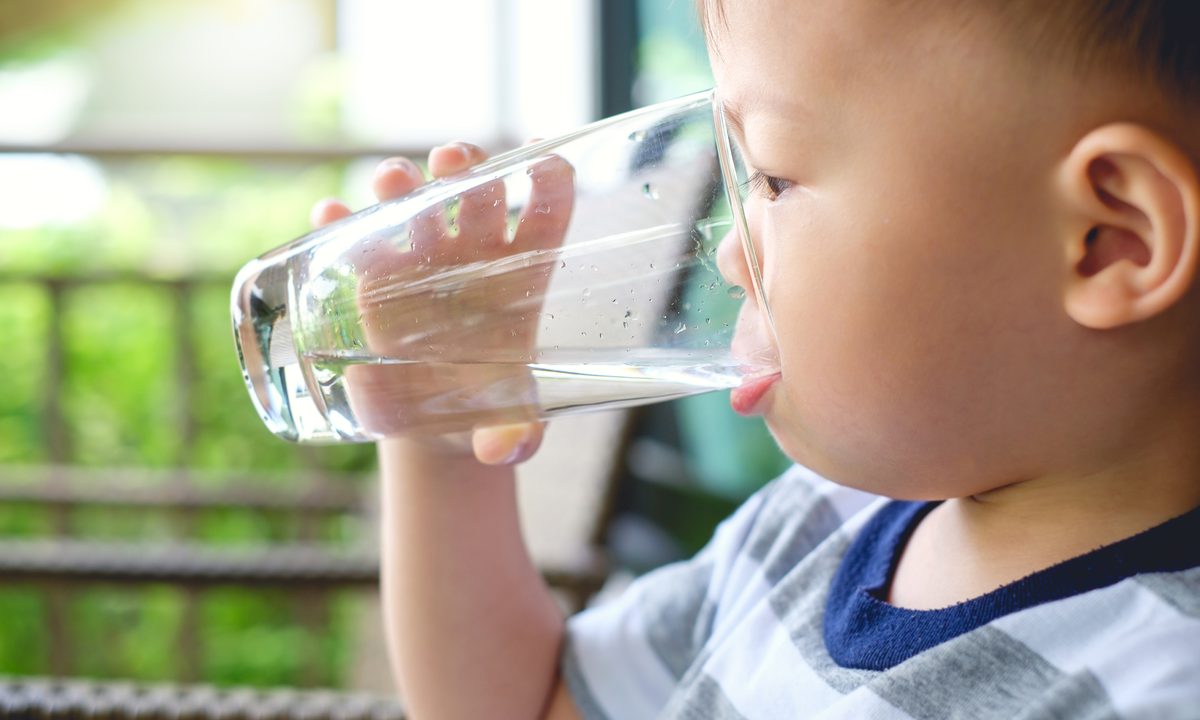Every adult knows the importance of drinking 8 glasses of water a day, but how much water should a 1-year-old drink? As you transition your child to eating solid foods, it’s time to introduce enough liquids to balance their diet. Milk is likely still a huge part of your child’s daily diet, and they are most likely drinking it more than water. Although milk is important for toddlers to drink to help with the development of their bones and teeth, they must also drink water. If you’re wondering how much water a 1-year-old should drink, here’s what you need to know.
How much water should a 1-year-old drink?
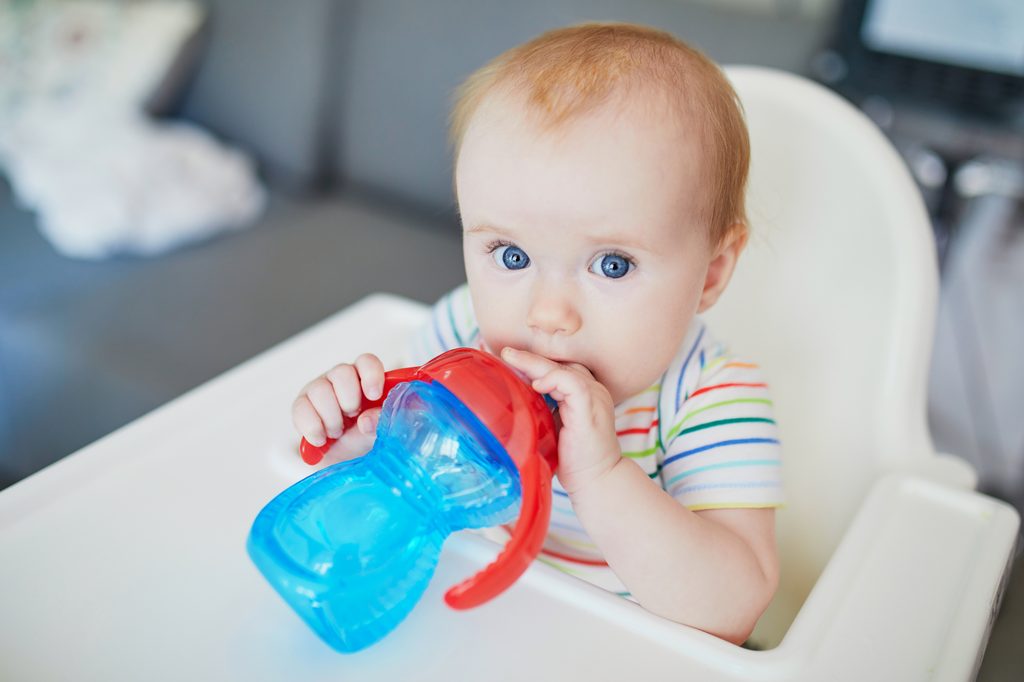
According to the American Academy of Pediatrics (AAP), 1-year-olds should drink 1 to 4 cups (8 to 32 ounces) of water per day and 2 to 3 cups (16 to 24 ounces) per day of whole milk.
Before their first birthday, babies don’t need to drink much water. When solid food is introduced around 6 months of age, they should drink between half a cup to a cup of water per day. Once they turn 2, the daily water recommendation increases to 1 to 5 cups (8 to 40 ounces) daily.
Some medical professionals recommend 1 cup of water per year of age, so 2 cups a day for a 2-year-old, 3 cups for a 3-year-old, and so on. That’s pretty easy to remember.
Can a toddler drink too much water?
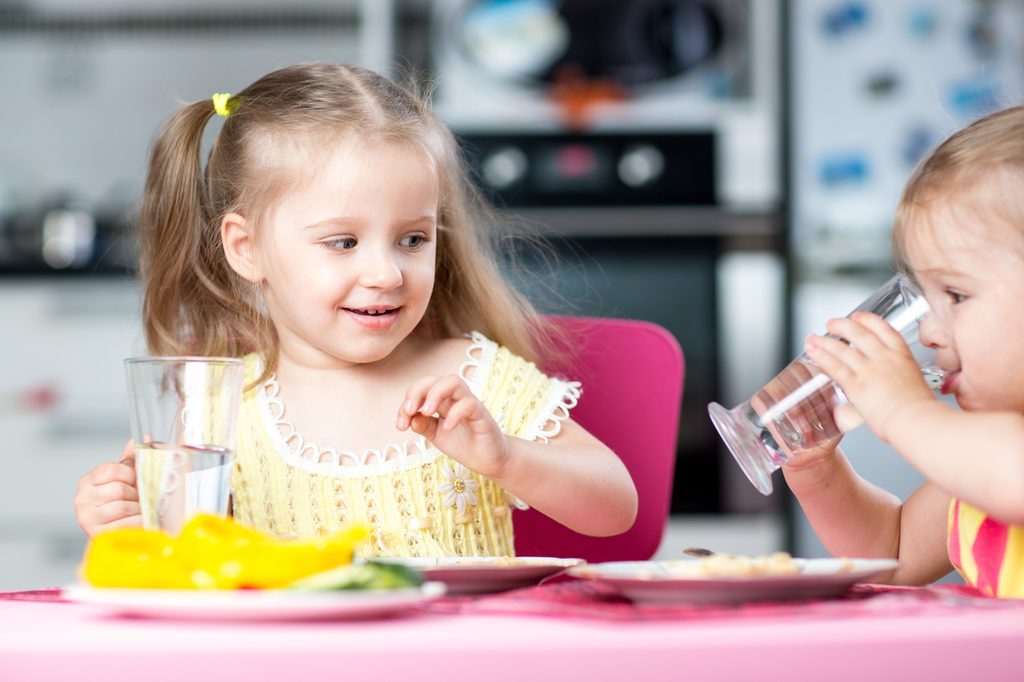
Overhydration is rare, but possible. Dehydration is more likely to be a cause of concern with toddlers.
Symptoms that your child needs more water
- Diarrhea
- Low energy
- Not much (or no) pee
- Dark-colored pee
- Dry lips
- Cold skin
- Irritability
- Sticky mouth
- Sunken eyes
- Dizziness
Symptoms if your child has drunk too much water
- Fatigue
- Nausea
- Low appetite
If you notice your child isn’t eating because their stomach is full of liquids, reduce the amount of drinks you give them for a while. Constantly nursing on their sippy cup all day may disrupt their appetite and result in them eating less. In general, there’s no limit to the amount of water you could offer a child once they turn 1, unless their lack of appetite becomes an issue.
What about other drinks?
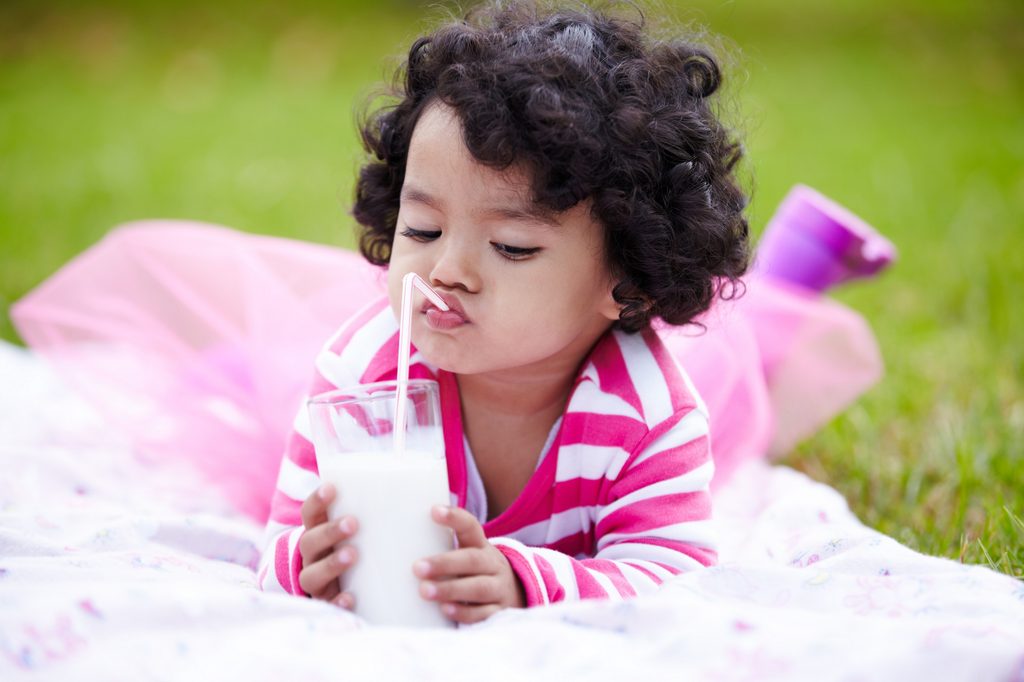
Water is the gold standard in hydration for kids. Sugary fruit juices, toddler milk from formula companies, and milk with added sugars like chocolate milk do more harm than good. Because these have added sugars and sweeteners, they get your child used to higher levels of sweetness. The AAP recommends no more than half a cup of fruit juice per day. Eating whole fruit is much healthier than drinking fruit juice.
While milk is also important for nutrition for 1-year-olds, they also need to drink plain old water without any sweeteners every day. It doesn’t harm their teeth and sets them up with a good palette that isn’t always craving sweetness.
While water and whole milk are the only drinks young toddlers should have, how do you know which to offer? Too much milk could cause consequences like iron deficiency, constipation, and filling them up, so they don’t want solid foods with important nutrients.
Water is perfect for between meals to avoid too much milk. Stick to the recommended 2 to 3 cups of milk per day for 12- to 24-month-old kids to provide the appropriate amount of healthy fats, calcium, protein, and vitamins. After the age of 2, kids could switch from whole to skim milk.
Make sure your water is safe
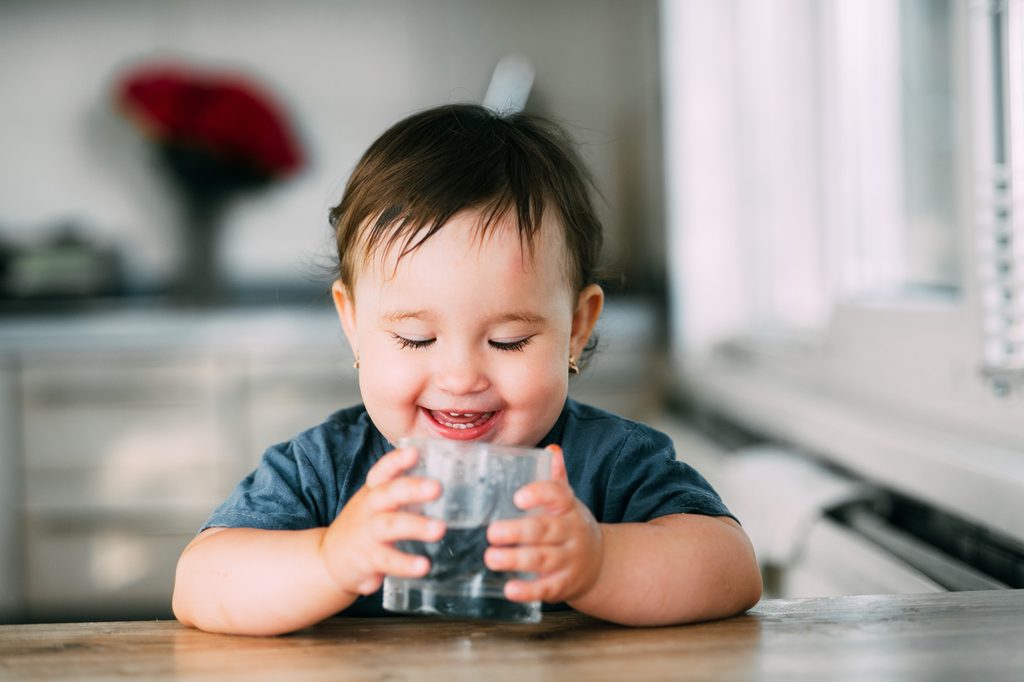
Although most tap water in the U.S. is safe to drink, there are some exceptions, like if your water source is from untested well water or if your baby has low immunity. WebMD suggests fluoride found in most tap water can lead to unsafe levels of lead for babies.
If you’re concerned about the quality of your tap water, you can install a water filter or get a water jug with a built-in filter. There is also the option to purchase distilled water for drinking and mixing formula. If you’re not sure if your tap water is safe, you have a few options when it comes to getting it tested. You can send a sample to the EPA for testing, or you can purchase an at-home kit and test it yourself. Even if you live where there are strict regulations regarding water, living in a home with older plumbing or in a rural area can impact the quality of your water.
Risks for infants

Parents need to exercise caution when giving their 1 year old and infants water because too much could potentially lead to serious health complications. Experts warn that too much water can contribute to an imbalance in sodium levels that can cause seizures, brain damage, coma and even death.
Symptoms of water intoxication can include unusual fussiness, extreme drowsiness, behavioral changes, low body temperature (97 degrees or less), unusually clear or pale urine, an excessive amount of wet diapers (more than 6 to 8 daily), puffiness or swelling in the face, and seizures. Muscle cramps, nausea, vomiting, and difficulty breathing are all symptoms of water intoxication. If you suspect your child may be suffering from water intoxication, consult your doctor immediately.
How to get your toddler to drink more water

Lead by example by sipping on your own water throughout the day. Toddlers are suggestible and want to steal what’s on your plate, so this tactic is pretty effective. You could also get your child involved by letting them pick out a sippy cup and helping them fill it up. Drinking water isn’t the only way to get your child hydrated. Fruits like watermelon are dripping with fluids that help keep them hydrated. Around 20% of your child’s fluid intake per day comes from food.
When to offer your child more water
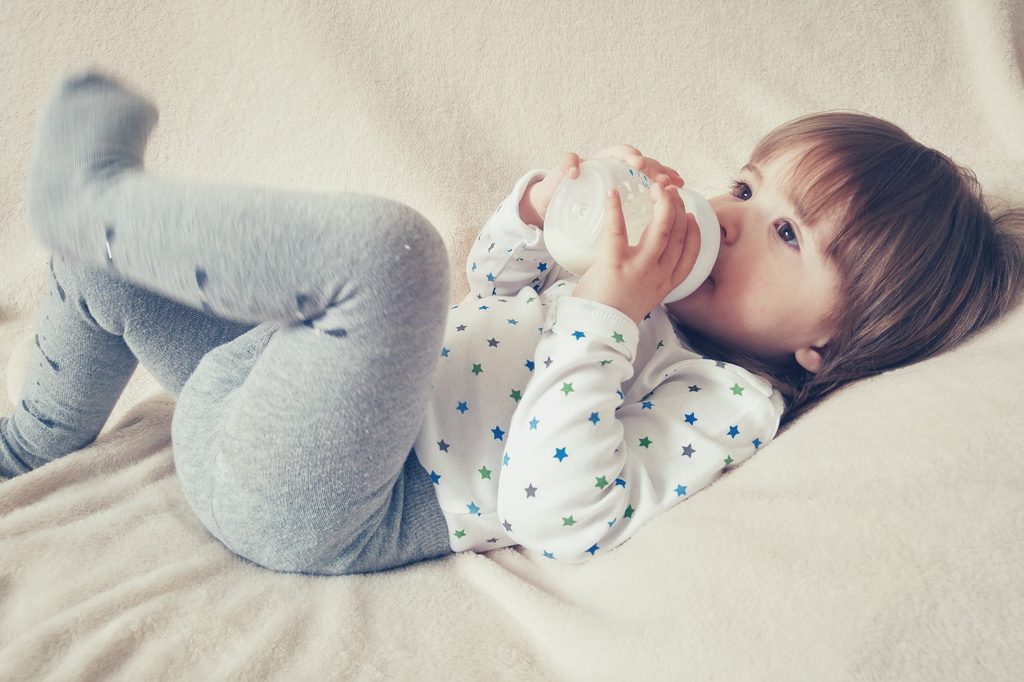
Here are times when you need to offer more water than normal to keep your kiddo healthy and safe;
When it’s really hot outside
Remember to increase the amount of water they drink the more they sweat from hot weather.
If they’ve been extra active
Just like when you bring that water bottle to the gym or on your walk, your kiddo needs more water after a long day of movement.
If your child has a cold
Not only will this help their throat stay moist so they aren’t coughing constantly, but their body needs the water to heal and return to normal.
If they have diarrhea or have been sick
Any time your kiddo is losing fluids — no matter how it happens — they need to be replenished.
Water is just one part of a balanced diet, and you should work to balance it with other foods and drinks in your child’s daily life. Rest assured that 1 cup of water a day is enough, and it doesn’t have to be all at once, so a few sips here and there will add up. Once your kiddo is 1, make sure water becomes one of their favorite drinks to set them up for a lifetime of healthy, hydrating habits.
